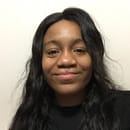“Names are prominent identifiers… racialised-renaming makes me feel like an inconvenience”, says Yewande Biala, a previous Love Island Contestant.
Amid the argument between ex Love Islanders, Yewande Biala and Lucie Donlan (where Lucie claimed that Yewande had bullied her during the show), Yewande has responded and brought to light an important issue. She stated that she wasn’t a bully as she had been portrayed, as she was the one being subject to microaggressions.
Microaggressions are an indirect, subtle, or unintentional form of discrimination against members of a marginalised group such as a racial or ethnic minority.
It was revealed that Lucie refused to pronounce Yewande’s name properly throughout filming the show, despite being corrected on numerous occasions. Yewande released a statement on twitter detailing her experience of this.
She stated that names are prominent identifiers that can often tell the story of one’s cultural and ethnic background; being subject to racialised-renaming is a form of oppression as it strips minorities of their identity.
With Lucie’s disregard for saying Yewande’s name correctly, she is quoted saying “yeah whatever, you know what I mean”. This made Yewande feel like she was an inconvenience- she felt as though she did not matter.
Many people on Twitter have identified with this, and shared their own similar experiences.
Hazel, who is a mother, explained how people have disregarded her daughter’s names and tried to change them for convenience:
I can’t enumerate the number of times ppl have asked what they can call my girls ‘for short’. My short answer – ‘you can’t’. Ishthara and Kashmira each has fewer syllables than ‘Elizabeth’. Most offensive was a white English man saying ‘Can I just call them “One” and “Two”?’
— Hazel Katherine Larkin (@HazelKLarkin) January 23, 2021
Tweet courtesy of @HazelKLarkin
Punteha, a British Iranian woman, stated how no one pronounces her name correctly:
Such important words. I was born in the U.K. and nobody says my Iranian first name right. I used to get so upset. It’s not that hard. Pun-teh-a. I gave up as I didn’t have the energy anymore to feel so embarrassed fighting it. Everyone calls me Punta. Not remotely the same. Sigh
— Punteha (Pun-teh-aah) van Terheyden (@vTFeatures) January 23, 2021
Tweet courtesy of @vTFeatures
Alex, a man who is half Sri Lankan, shared the struggles he faces with his surname (embed tweet):
This resonates so strongly with me. Being half Sri Lankan with a Sri Lankan surname. I can’t tell you the amount of times people have looked at my surname and just dead eye said I ain’t going to pronounce that because it’s too much of an inconvenience to learn how to pronounce!
— Alex W (@alexw1202) January 23, 2021
Tweet courtesy of @alexw1202
This topic of interest also links back to when comedian Hasan Minhaj taught Ellen how to pronounce his name correctly, whilst on her show in 2019. He explained that people often struggled to pronounce his name, but he did not want to change it to a stage name when he first went into comedy, as it was a part of his identity, he wanted people to make an effort to get it right.
Youtube video courtesy of @TheEllenShow
What should we take away from this?
It is clear to see that racial-renaming and microaggressions are common experiences amongst ethnic minority people, and so people should be more aware of this issue, and take more consideration when addressing people, putting in the minimal amount of effort it takes to correctly pronounce a name.
It is important to recognise that our behaviours can be harmful to others as we could be discriminating against people unknowingly- we should then aim to change our behaviour when it is made known to us that we are.
More about microaggressions
According to Dr Derald Wing Sue (a counselling psychology professor), microaggressions are not just a racial form of discrimination. This is due to the fact that many marginalised groups of people such as women, the LGBTQ+ community, people with disabilities, and religious minorities are subject to them too.
Here are some more examples:
- An Asian British person who was born in the UK being complimented for how well they speak English.
- A female manager being labelled a ‘b*tch’ for being assertive, compared to a male counterpart being described as a forceful leader.
- A homosexual person being told that they do not ‘look gay.’
- A person with an invisible disability being told that they ‘look normal.’
- A religious person telling a non-religious person that they will change their mind eventually.
Dr Sue proposes 5 ways in which we can work towards overcoming microaggressions.
We should:
- Be aware and vigilant of our own biases and fears.
- Interact with people who differ from us (e.g., race, culture, and ethnicity)
- Try not to be defensive if you do make a mistake.
- Be willing to discuss our own attitudes and biases to discover how they might have hurt others.
- Be an ally- stand up against all forms of bias and discrimination.
Words By: Tamikka Reid
Edited By: Amy Randles



